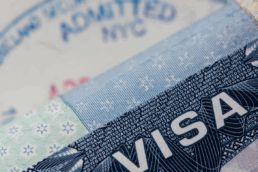In accordance with President Trump’s Buy American Hire American Executive Order, U.S. Citizenship and Immigration Services (USCIS) is reviewing employment-based immigration programs in an effort to eliminate fraud and ensure adjudications are consistent. As a part of this effort, USCIS recently published clarifications for the L-1 nonimmigrant classification foreign employment requirement.
An L-1 visa allows a U.S. employer to transfer an executive or manager from an affiliated foreign office to an office in the U.S. Additionally, this classification allows a foreign company to send an executive or manager to the U.S. to establish an affiliated U.S. office. In addition to executives or managers, the L-1 category is applicable for employees with specialized knowledge. One requirement of the L-1 category is that a qualifying organization employs a principal L-1 beneficiary abroad for at least one continuous year out of the three years preceding petition filing.
In order to meet the one-year of continuous employment requirement, an L-1 beneficiary must first be physically outside of the U.S. during the required one continuous year of employment. There is a narrow exception for brief trips to the U.S. for business or pleasure. These trips will not count as interruptions to the continuous year; however, these trips must be subtracted from the continuous year and made up. Second, the petitioner and beneficiary of the L-1 visa must meet all requirements at the time the petitioner files the initial L-1 petition. This includes the requirement for one year of foreign employment.
USCIS highlighted clarifications to the definition of “three years” in this context. Time spent by a beneficiary working in the U.S. for a qualifying organization results in an adjustment of the three-year period requirement. On the other hand, periods of employment with the qualifying organization as a dependent of the principal or as a student do not result in an adjustment to the three-year period. Periods of time in the U.S. not working or working for an unrelated employer do not result in an adjustment of the three-year period. It is important to note that these time periods interrupt the one-year requirement.
Filing for a successful L-1 visa requires detailed knowledge of its nuanced requirements. If you are interested in applying for an L-1 visa, contact Berardi Immigration Law to schedule a consult with an attorney today!
Ready to have Berardi on your side?
Whether you’re a business looking to hire or a professional hoping to relocate, immigration law can be complicated. But you don’t have to do it alone. Put our experience to work for you.



